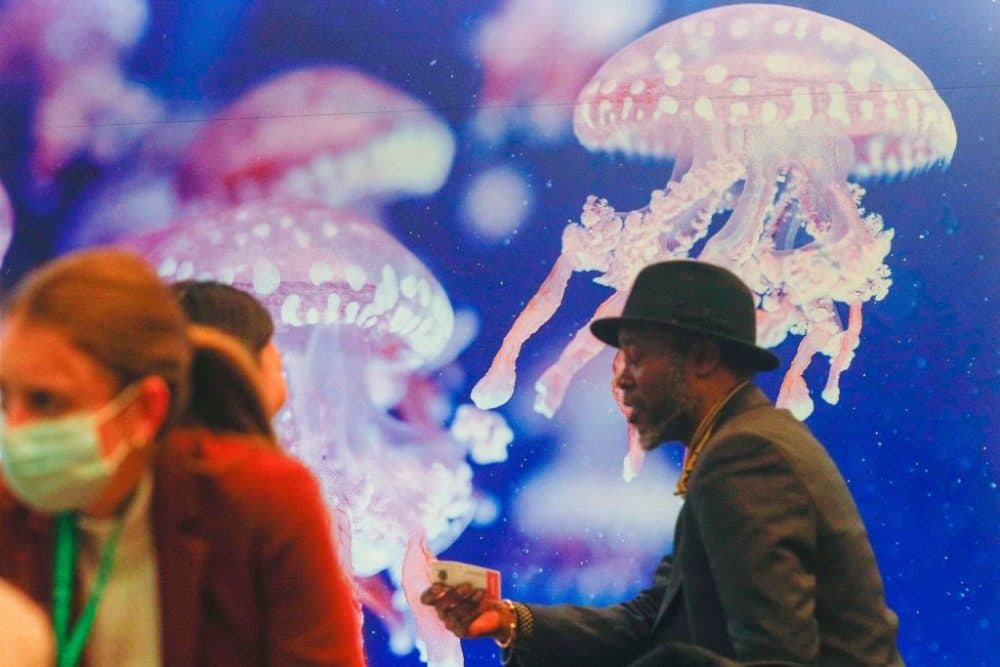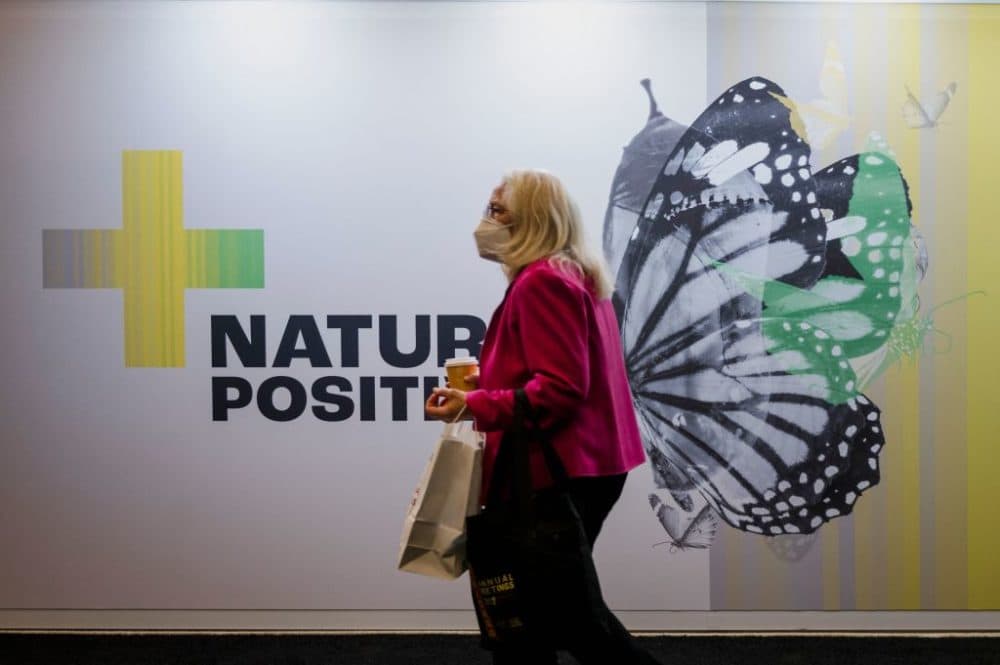Advertisement
Commentary
The other ecological crisis that should keep us up at night

Anyone over 40 years old remembers when a summer drive reliably yielded a sticky muddle of splattered bugs on a car's grille and windshield. The reason you don't see that so much nowadays is simple: There are far fewer insects.
The ominous collapse of insect populations is only one of the disturbing facts confronting conservationists and diplomats at the United Nations Biodiversity Conference, now underway in Montreal. The challenges the delegates are facing parallel those of a much more publicized ecological crisis, namely climate change. The two crises, related but distinct, require international cooperation and enormous amounts of money to combat.
A key difference is that addressing the climate crisis hinges on decarbonizing global energy systems, a mammoth task that many capitalists now regard as a gateway to highly profitable new industries. But conserving nature entails no novel technological project analogous to decarbonization that would offer comparable private investment inducements.
Ecosystem protection depends on nations of the world recognizing its vital importance and agreeing to allocate public money accordingly — a precarious contingency.

It's a situation that urgently demands attention. Biodiversity loss is accelerating along two axes: loss of overall numbers of animals and loss of species.
This past October, World Wildlife Fund's Living Planet Index reported sharp drops in animal abundance. They estimate that populations of monitored vertebrate species are down an alarming 69% on average since 1970, with freshwater species suffering even more significant declines.
The International Union for Conservation of Nature estimates that extinction threatens more than 42,000 species, including more than a quarter of all mammals. Recent studies indicate extinctions in the past century are occurring 100 times faster than the historical background rate.
Extinction, it's often said, is forever. Industrial civilization is burning books from the library of evolution.
Biodiversity loss leads to the impoverishment of crucial ecosystems humans depend on. Our agriculture relies on diverse soil biota to transport nutrients; coral reefs provide habitat and protect coastal areas; wetlands filter water, removing sediments and pollutants; bees and other insects pollinate crops. As absurd as it seems to put a dollar value on nature, researchers estimate that ecosystem services and natural capital are worth $44 trillion annually.
Advertisement
Extinction, it's often said, is forever. Industrial civilization is burning books from the library of evolution.
Extinction and depopulation erode an ecosystem, leaving it a moth-eaten tapestry, devoid of its former wholeness, incapable of providing the services it once did.
As the world’s population trends steadily upward, economic growth exacerbates biodiversity loss. Statistics from the United Nations show the correlation between rising economic output and increasing amounts of raw materials extracted to meet global demand, implying growing consumption that stresses ecosystems.
Urban areas are expanding and making inroads into natural habitats. Grasslands are being converted to monoculture croplands, and forests are being leveled for timber and farming. Wetlands are being drained for development. Massive amounts of fertilizer and pesticides are leaching into waterways, and plastics threaten both terrestrial and aquatic ecosystems.
Global warming only adds fuel to the fire. Droughts of increasing frequency and severity disrupt many ecological processes. Sea-level rise threatens life in coastal marshes and estuaries. Shifting seasonal boundaries affect flowering and migration patterns, and marine organisms are acutely sensitive to temperature and acidification.
Climate change contributes to diminishing biodiversity, but its mitigation alone does not constitute a solution. Electrifying our buildings and transportation systems won’t restore topsoil ecology. Producing power with wind turbines and solar arrays won't slow down human encroachment on wildlife habitats — indeed, it may worsen the problem.
Proponents of green growth believe the fossil-powered global economy that gave us both affluent modernity and the climate crisis can be adapted for indefinite sustainable expansion. We have already witnessed dramatic improvements in renewable energy technology, spurred by competitive economic conditions and large infusions of capital.
But paradoxically, the same capitalist impulse generating the technological innovations that will enable the transition to clean energy is also driving worldwide growth in material consumption that undermines the integrity of the environment.
We cannot afford to conflate the climate and biodiversity crises, both of which threaten the future of human societies. Although the two are linked, they call for different courses of action.
In Montreal right now, representatives from more than 190 countries are working on a Global Biodiversity Framework, biodiversity's equivalent of the 2015 Paris Climate Agreement. Its marquee "30 x 30" plan is to protect 30% of the world's land and oceans by 2030. Nations fell far short of similar goals they set for 2020, much as they have for carbon emissions goals set in Paris.
It's plausible that profit-driven energy technology industries, backed by progressive government policies, will largely succeed in decarbonizing the global economy before the worst effects of climate change are felt. But that achievement will be of little benefit if unsustainable growth and development continue to degrade the planet's critical ecosystems.
